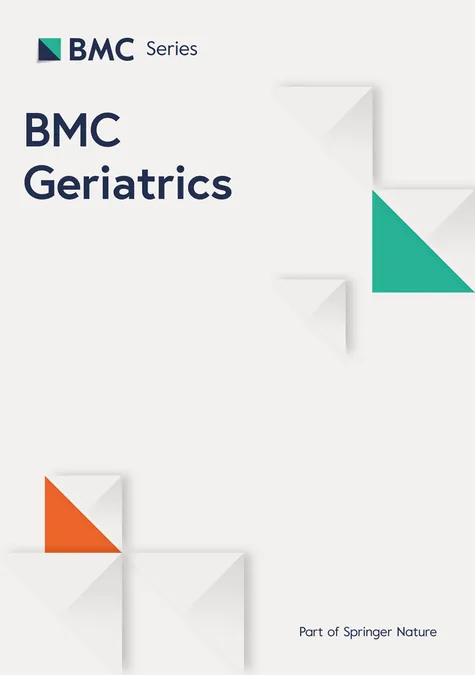
Unlocking Trust: The Validity of the Turkish Trust in Physician Scale for Older Adults
2025-06-05
Author: Sophie
Turkey's Aging Population and Healthcare Challenges
With an aging demographic soaring to about 10.6% of Turkey's population by 2024, approximately 9.1 million individuals aged 65 and older face unique healthcare challenges. These include limited access to services, mobility issues, low digital literacy rates, financial strains, and cultural barriers, which collectively complicate healthcare access for the elderly.
The Crucial Role of Trust in Healthcare
Trust in physicians is vital for older adults, influencing their healthcare experiences and outcomes. This trust can lead to better adherence to medical advice, lower anxiety, and increased satisfaction. Conversely, breaches of trust—stemming from miscommunication, perceived negligence, or misdiagnoses—can deter individuals from seeking care, potentially leading to worsened health.
Defining Trust in the Patient-Physician Relationship
Trust is fundamentally about belief in a physician's commitment to a patient's well-being. In healthcare, it represents a patient's confidence that their physician will provide optimal treatment and care, forming the backbone of effective doctor-patient relationships. Such trust not only enhances psychological and social well-being but also plays a crucial role in health outcomes.
Understanding the Trust in Physician Scale (TPS)
The Trust in Physician Scale (TPS) was designed to quantify the trust patients place in their doctors, particularly focused on managing chronic illnesses. Originally validated in diabetic patients in the U.S., the TPS includes 11 items assessing factors such as a physician's reliability and confidentiality, forming a critical tool in measuring trust within various healthcare settings.
Translating and Validating the TPS for Turkish Older Adults
Despite the TPS's utility, it had not been translated for Turkish older adults until now. This study endeavors to evaluate the reliability and validity of the Turkish version, known as TPS-TR, to ensure it resonates with community-dwelling seniors in Turkey.
Study Design and Methodology
Conducted among Turkish seniors aged 65 and over attending outpatient clinics, the study excluded those with significant cognitive or language barriers. A rigorous process—comprising expert translation and back-translation of the TPS—ensured cultural appropriateness, followed by psychometric evaluation involving various established scales.
Key Findings: Reliability and Validity of TPS-TR
The TPS-TR demonstrated exceptional reliability, with a Cronbach’s alpha value of 0.866, indicating high internal consistency. The test-retest reliability was robust, as shown by an ICC of 0.903. Furthermore, strong correlations with another trust measure underscored the TPS-TR's validity.
Broader Implications for Patient Care
The findings signify that the TPS-TR can be a valuable resource in fostering better physician-patient relationships in Turkey's evolving healthcare landscape. With aging populations relying heavily on physician guidance, enhancing trust is essential for promoting adherence to treatment and improving overall health outcomes.
Limitations and Future Directions
While the study is groundbreaking, it is limited by its single-region focus and the homogeneity of the outpatient sample, potentially affecting the generalizability of the results. Future research utilizing larger, diverse cohorts across various settings is vital for broader implications.
Concluding Thoughts on Trust in Healthcare
In Turkey's rapidly changing healthcare environment, promoting trust through validated instruments like the TPS-TR can lead to improved doctor-patient communication and ultimately, better health outcomes for the elderly. Ensuring that older adults feel respected and heard can transform their healthcare experiences, significantly benefiting their quality of life.









 Brasil (PT)
Brasil (PT)
 Canada (EN)
Canada (EN)
 Chile (ES)
Chile (ES)
 Česko (CS)
Česko (CS)
 대한민국 (KO)
대한민국 (KO)
 España (ES)
España (ES)
 France (FR)
France (FR)
 Hong Kong (EN)
Hong Kong (EN)
 Italia (IT)
Italia (IT)
 日本 (JA)
日本 (JA)
 Magyarország (HU)
Magyarország (HU)
 Norge (NO)
Norge (NO)
 Polska (PL)
Polska (PL)
 Schweiz (DE)
Schweiz (DE)
 Singapore (EN)
Singapore (EN)
 Sverige (SV)
Sverige (SV)
 Suomi (FI)
Suomi (FI)
 Türkiye (TR)
Türkiye (TR)
 الإمارات العربية المتحدة (AR)
الإمارات العربية المتحدة (AR)